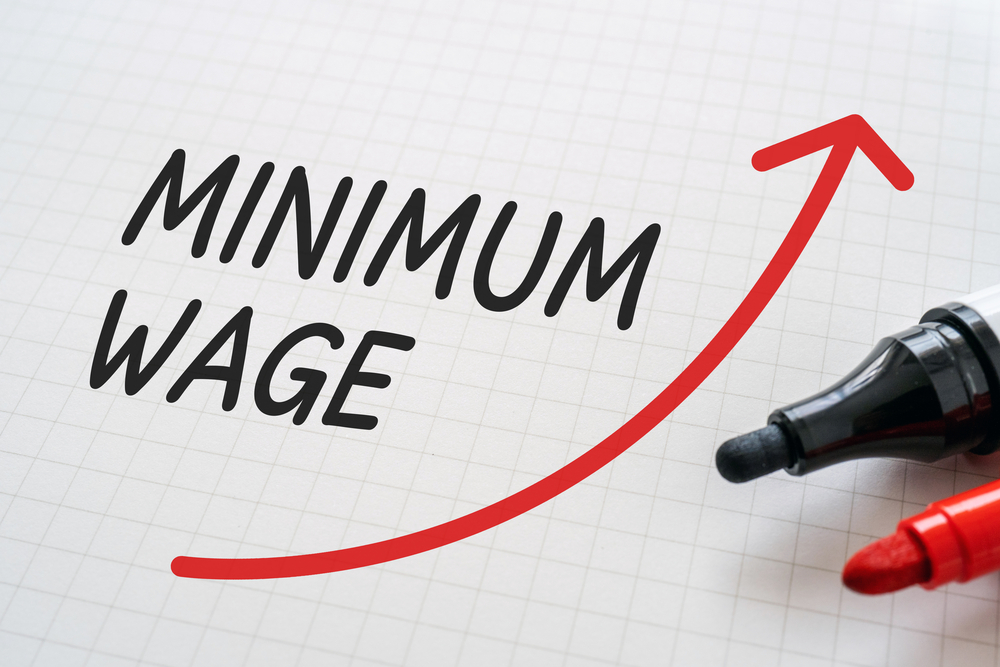Minimum Wage Increasing in New Jersey: How It Impacts Your Business
 For 2023, the minimum wage in the state of New Jersey has been increased by $1.13 per hour, making the new minimum wage $14.13 per hour for most employees. This change went into effect on January 1st of this year. It’s important for business owners to be aware of these kinds of changes to their daily expenses and operations, and understand how those changes impact their company. Keep reading to learn more about the minimum wage increase and how it might affect your business.
For 2023, the minimum wage in the state of New Jersey has been increased by $1.13 per hour, making the new minimum wage $14.13 per hour for most employees. This change went into effect on January 1st of this year. It’s important for business owners to be aware of these kinds of changes to their daily expenses and operations, and understand how those changes impact their company. Keep reading to learn more about the minimum wage increase and how it might affect your business.
Why the Increase?
This year’s minimum wage increase is part of legislation that was signed by Governor Murphy in 2019. This legislation will raise the minimum wage to $15 per hour for most employees by the year 2024, with annual increases of at least $1 per hour each year.
Of course, as stated above, the minimum wage increase for 2023 was $1.13, so you may be wondering why the extra $0.13 has been added to the annual increase. The legislation signed by Governor Murphy made allowances for significant increases in the Consumer Price Index (CPI). Because of the high rate of inflation in 2022, the minimum wage increase for this year was higher.
When determining the annual minimum wage increase, the New Jersey Department of Labor and Workforce Development uses either the specified rate of $1, or a calculation based on the CPI—whichever is higher. In this case, the high inflation made the CPI calculation the better option for workers. Accounting for those rising costs allows the minimum wage increases to make a more meaningful impact for low-wage workers, rather than seeing their wage increases lost to high inflation rates.
Who Are the Exceptions?
As with most things, the minimum wage legislation does have some exceptions, and not all workers will see the same increases at the same rates. Here are a few notable exceptions for employees that you should be aware of as a business owner:
- Small employers and seasonal businesses have been given until 2026 to increase workers’ wages to $15 per hour in an effort to reduce the financial impact on their businesses. This year, employers who fall into this category have to increase their workers’ wages by $1.03, making the minimum wage for small businesses’ and seasonal employees $12.01 for 2023.
- Agricultural workers also have their own minimum wage table, which give their employers until 2027 to reach a minimum wage of $15 per hour. For 2023, agricultural employees will see an increase of $0.96, bringing their minimum wage from $11.05 to $12.01.
- Direct care staff members at long-term care facilities have a different minimum wage table as well, with higher minimum wages than many other workers. Their minimum wage this year was increased by $1.13, bringing it to $17.13 per hour.
- The minimum wage for tipped workers has always been a point of debate for many Americans, If you employ tipped workers, their minimum wage is set at $5.26 per hour, and you, as the employer, are able to claim an $8.87 tip credit—an increase of $1 in the maximum allowable tip credit. Additionally, it’s important to note that if an employee’s tips do not bring their hourly wage up to the current minimum wage for New Jersey, then you must pay the employee the difference to ensure they are making at least $14.13 per hour in 2023.
Understanding which wage rates apply to your business is incredibly important so that you can ensure you’re in compliance with New Jersey’s labor laws.
How Does It Impact Your Business?
Obviously, a required increase in employee wages will increase your business’s operating expenses on a daily basis. It’s important that you’re carefully tracking employee hours, tips, and overtime to help you properly manage your expenses and make certain that each employee is paid at least the minimum wage. Failure to do so, even if by an honest mistake, can result in serious consequences for your company, including fines, lawsuits, and loss of licenses.
Additionally, at the end of the year, you’ll need to ensure that you’re properly claiming the increased tip credit, if applicable to your business and industry. If you need help with managing your books to ensure that you’re keeping up with changes to minimum wage rates and related tax laws, contact Demian & Company CPAs today to speak with one of our experienced tax professionals. We’ll answer any questions you may have, and provide the ongoing accounting advice you need to help your business grow.
